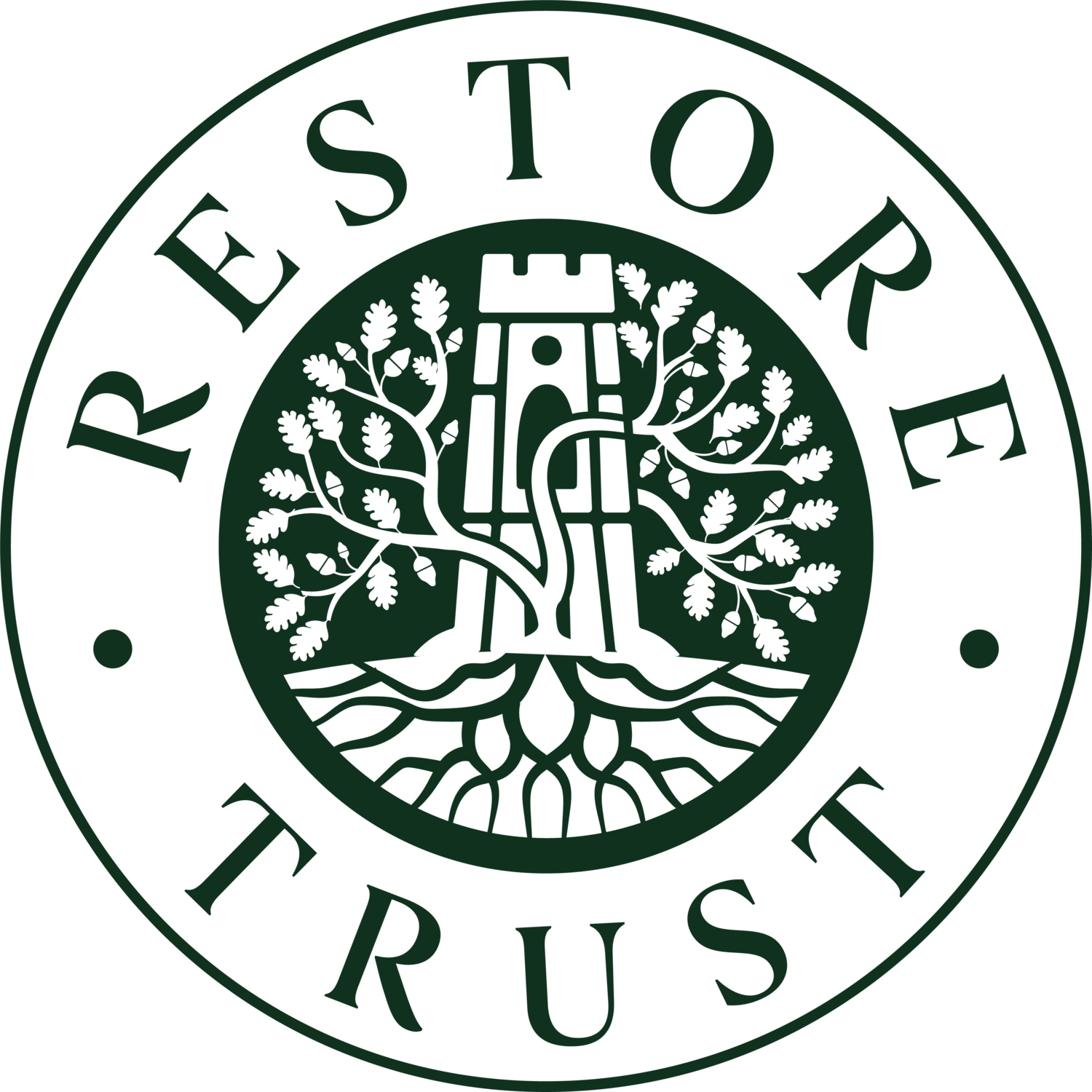Two elephants in the room and the dog that didn’t bark
Hilary McGrady had nothing to say about the planning application to leave the interiors of Clandon Park unrestored, nor the Quick Vote.
Hilary McGrady has given an interview to The Times to mark the National Trust’s 130th birthday which mentions neither the highly contested current planning application to keep the interiors of Clandon Park in their ruined state, nor the controversial ‘Quick Vote’. The Times suggests that the restoration of the Bath Assembly Rooms is not the National Trust doing its job, but a ‘sop to traditionalists’. If this is what they think at the National Trust, our heritage is in deep trouble. Contrary to what the article states, the National Trust was already the custodian of two country houses by 1945, Barrington Court and Whitwick Manor.
One issue — above all others — dominates the inbox of Hilary McGrady, director general of the National Trust: dogs.
“About 50 per cent say we should ban all dogs, the other 50 per cent want more access for dogs. I had an email this morning with somebody complaining there were too many and one yesterday from someone complaining he couldn’t bring his dog to a property,” she says. The squabbling seems emblematic of our polarised times. “Yes, it does feel everyone is split 50/50 on everything at the moment.”
Even the cosy National Trust, of red-roped stately homes, carefully-tended parkland and bustling tearooms, has in recent years been battered both by vitriolic accusations of “wokery” and — albeit less vocally — of being too focused on dusty relics of a parasitical elite. McGrady, 58, who has worked for the charity for 19 years and led it for the past seven (“I live and breathe it”) must try to appease both sides.
“The culture wars we’re trying to grapple with are never something I supported or tried to attract,” she says, sitting in a chilly former prayer room in Charterhouse, Coventry. The building is a former 14th-century monastery featuring some of the finest medieval and renaissance art in the UK, which the Trust will open to the public at Easter.
“Often it’s felt as if [attacks] have been used as a mechanism to push other agendas and we’re caught in the middle,” McGrady says.
What agendas is she referring to? She points to the Trust’s 2020 report, detailing links to slavery in 93 houses in its care. Tory MPs such as Jacob Rees-Mogg and Priti Patel accused it of “denigrating” Britain’s history and promoting “cultural Marxism”. Both McGrady and the report’s author received anonymous death threats. “I’m from Northern Ireland so most of the time I have perspective, I think, ‘Seriously you’re getting so worked up about this stuff you think this warrants a death threat?’ It’s completely bizarre.” She didn’t report them to the police. “They have better things to do.”
“Some [critics] were saying we shouldn’t say anything about colonial relationships we’ve had in the past,” she continues. “But others said, ‘You’re not doing enough on this, you should be saying more.’” Often fault lines lie between the Trust’s members and staff — it keeps no data on ages but it seems likely the latter group is on average far younger than the former. Last year, McGrady commented that “70 per cent of my staff and volunteers would be regarded as progressive activists,” a remark interpreted by her detractors as meaning “anti-British”.
“What I was trying to describe was: I’ve got a bunch of people who are really passionate about their subject, which is relatively common in the charitable sector, and it’s really hard to balance a staff who wants you to go in harder, with the audience you’re facing,” she explains.
“A lot laugh — they say how bizarre and bonkers — but it’s frustrating because it takes up a lot of time to counter the accusations and that gets in the way of doing good work. But it’s reality, so we have to crack on with it. What I have to try to do is navigate a line and do the right thing, which is to stay true to our charitable purpose.”
That purpose, as stated by Octavia Hill, who founded the Trust 130 years ago on Sunday, was to provide fresh air and green space to poor people in overcrowded cities. The stately home work only came after the Second World War when impoverished owners could no longer afford their properties’ upkeep. “We are more generally known for our houses, but the Trust was founded to give access to nature and in fact 90 per cent of our visits are to open spaces.”
Yet now McGrady is determined to “go back to our roots”, with new plans for the next decade announced this week. These promise to create 250,000 more hectares of nature-rich landscape — equivalent to one-and-a-half times the size of Greater London — both on its own land and off it, alongside a £17 million restoration of Bath’s Assembly Rooms as a sop to traditionalists. They also promise to restore carbon-absorbing peatland and improve the health of enough soil to provide a habitat for one billion earthworms — enough to ring the earth twice.
Such goals will inevitably infuriate not only those who believe the Trust is ashamed of Britain’s past, but also the “bunch of people saying climate change is a political thing and we should stay out of it”. Yet McGrady is adamant that she’s only responding to demands highlighted in the Trust’s recent 18-month-long survey of 70,000 people (60,000 of whom were existing members, the others “separate public groups” focusing on “young people in particular”). It is the largest survey conducted by the Trust.


